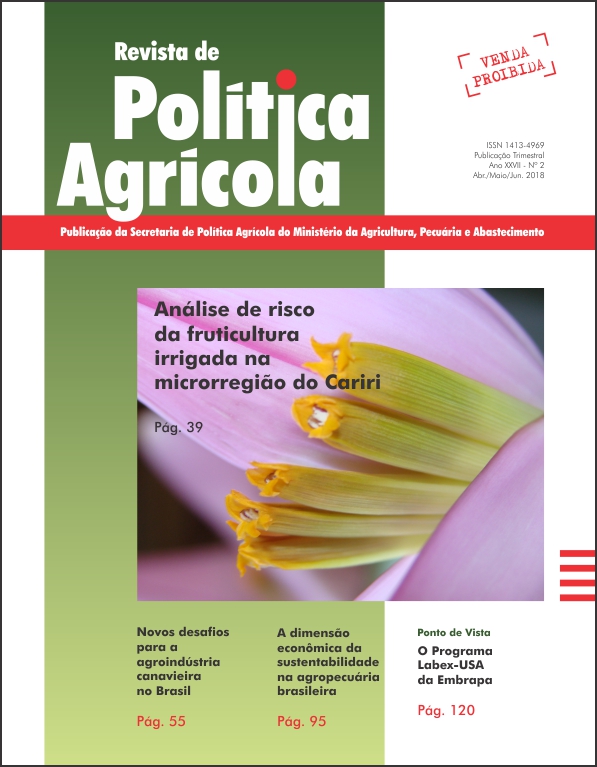The economic impact of sustainability in Brazilian agriculture
Keywords:
certification, rural credit, sustainable agriculture networkAbstract
Sustainability issues are increasingly embedded in the both business and entrepreneurship. Nowadays, almost all companies are questioned by their customers and consumers about the sustainability. In agriculture, this issue is especially relevant, since Brazil is the only one, among the large suppliers of agricultural products, to develop a tropical agriculture. This agriculture is developed in an environment of high biodiversity, which ultimately growing demand for sustainability from consumers, on this sector. This article proposes a brief reflection on sustainability, summarizing the history of this concept, listing the main actions developed by agriculture in Brazil. At the end, we present some economic results of the adoption of sustainability practices in Brazilian agriculture. The main motivation of this article is to show that sustainability inevitably includes economic aspects, so that identifying the impacts of the sectoral adjustments required to constitute a more sustainable agriculture is a necessary condition for development. At the end, some suggestions are presented for policies aimed at encouraging the adoption of sustainability in agriculture.Downloads
Published
2018-12-26
How to Cite
Bini, D. A., Miranda, S. H. G. de, Viana, C. E. de F., & Pinto, L. F. G. (2018). The economic impact of sustainability in Brazilian agriculture. Revista De Política Agrícola, 27(2), 95. Retrieved from https://rpa.sede.embrapa.br/RPA/article/view/1415
Issue
Section
Artigos Científicos


